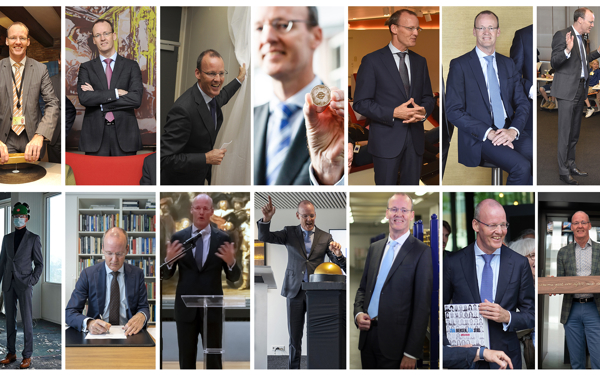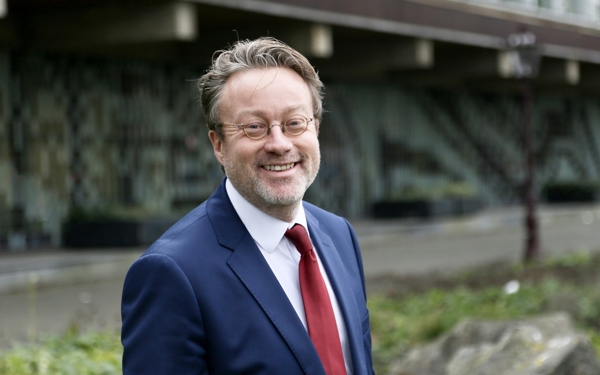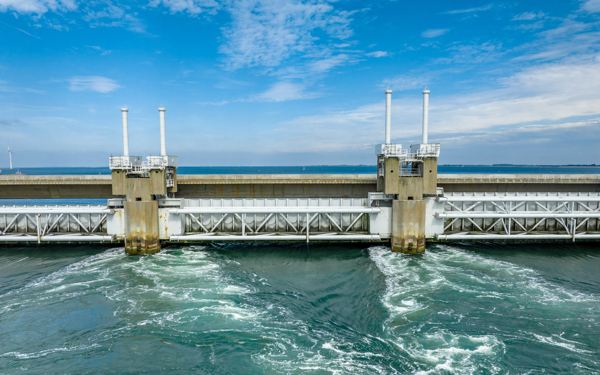Understanding our links to slavery
As DNB's Executive Board, we realised some time ago that we needed to gain a more objective understanding of DNB's links to slavery. This was triggered by the growing historical awareness about slavery and the ongoing fight against racism in society, combined with a desire from within our own organisation to gain a better insight into this matter. We do not wish to ignore this part of our own history, which is linked to the Netherlands’ history of slavery. This is why we decided to commission an independent historical study, which was conducted by Leiden University's Karwan Fatah-Black, Lauren Lauret and Joris van den Tol.
DNB was involved in slavery in three ways
The study shows that DNB was involved in three ways.
- Part of DNB's start-up capital came from business owners with direct interests in plantation slavery in the Atlantic region, for example in Suriname. Of the 16 initial major capital providers, 11 have now been linked to slavery.
- As an institution, DNB was indirectly involved in Dutch colonial slavery and slavery in non-Dutch areas, such as British Guiana. Having no branches in the colonies, it did not play a role in the day-to-day slavery-related financial transactions there. However, DNB did support the Ministry of Colonies in its day-to-day payment transfers and provided services to trading houses involved in slavery.
- To a greater extent than their contemporaries, several prominent DNB officials were personally involved in colonial slavery. Several of them had direct links with slavery-related businesses and some were also involved in the management of plantations. A number of prominent DNB officials organised themselves to represent the interests of slave owners in the political arena. Only one or two were involved in organisations working to abolish slavery.
Starting a process of reflection and dialogue
Our first step is to disclose and acknowledge our links to slavery. We believe it is important that everyone in the Netherlands and everyone in the Caribbean and Suriname has access to the study through our website. The facts that emerged from the study and the deeply racist beliefs that underlie them affect us deeply. DNB as it is in 2022 does not wish to disregard its past. The suffering of the enslaved people in the past is indescribable. DNB’s Executive Board deeply regrets this. While we cannot undo the suffering that has been caused, we can, as DNB, try to contribute to healing by making this history visible, and by acknowledging the facts and the suffering they have caused.
Read Klaas Knot's full statement in response to the study.
Secondly, we will soon be talking to our employees and representatives of civil society organisations, in particular with those who are especially affected by this history and the impact it has to this day. To this end, an external focus group will be set up, to be headed by Freek Ossel, former alderman of Amsterdam, former mayor of two municipalities including Beverwijk, and chairperson of the Steering Group for the National Transatlantic Museum of Slavery.
Our follow-up from the dialogue
We wish to find an appropriate manner to make a gesture of lasting value to those affected and Dutch society at large. In doing so, we choose to adopt a careful approach, and that takes time. The dialogue will produce follow-up actions, which we will share with you later this year.
Our historical links to slavery are a constant reminder that we must never cease to contribute to a society in which every person counts and in which no one is excluded.
For media enquiries please contact our press officer Farley Asruf by phone at +31 644 135 053 or by email at m.f.asruf@dnb.nl




